Introduction
Faculty Research Fellows Program
The Student Affairs Faculty Research Fellows Program allows faculty to conduct a research project to address important questions concerning Student Affairs at UIC. Faculty Fellows will identify important research questions relevant to UIC Student Affairs and answer those questions during a year-long fellowship program.
The application for the 2024-2025 Student Affairs Faculty Research Fellows Program is closed. Proposal deadlines and details are updated every summer, on the program information page.
Student Affairs Faculty Fellows 2024-2025
Student Affairs Faculty Fellows 2024-2025
Spirituality, place, and healing in UIC Black and Brown student activism
Spirituality, place, and healing in UIC Black and Brown student activism
Principal Investigator: Gordon Palmer, PhD
Spirituality, place, and healing in UIC Black and Brown student activism
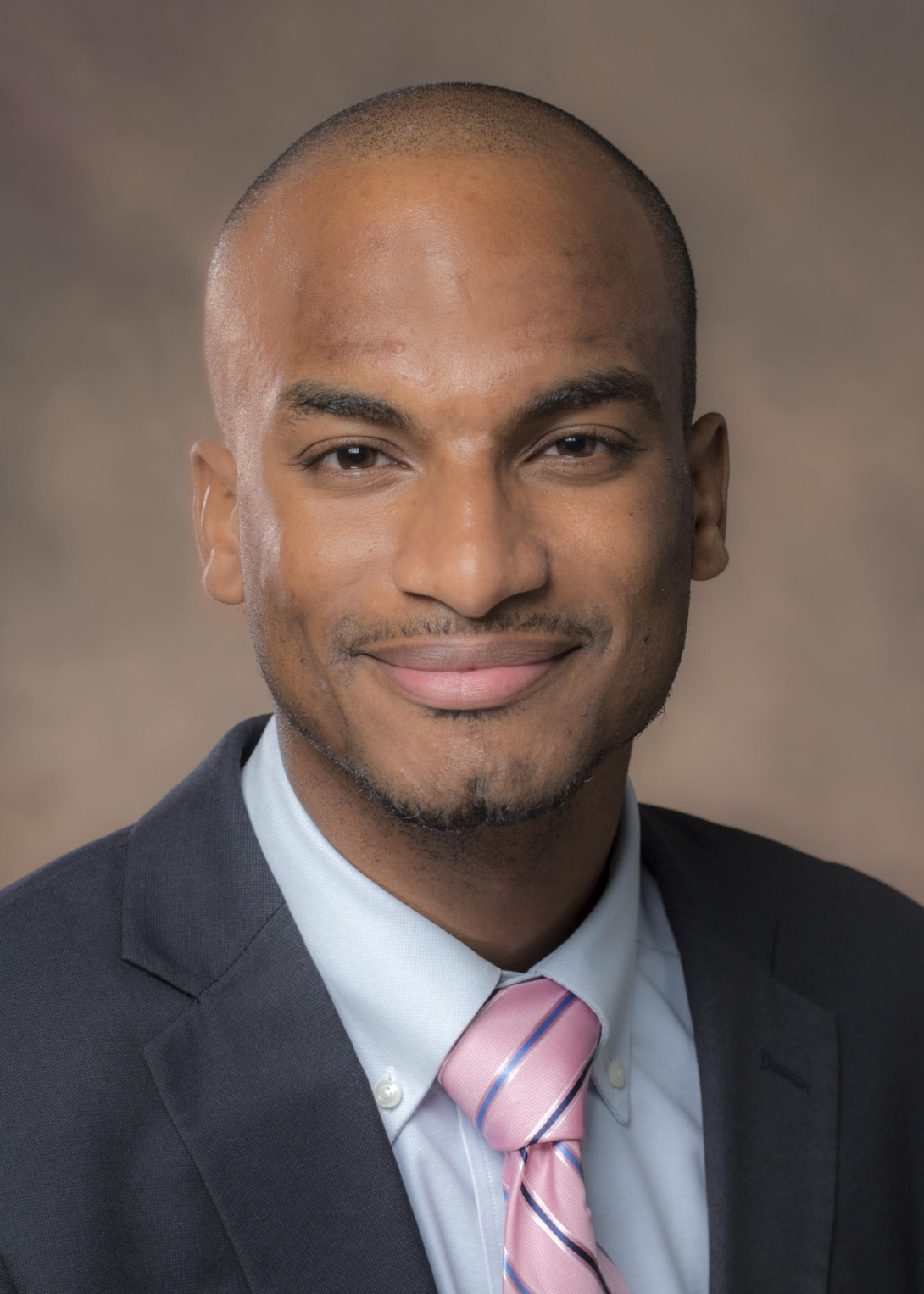
Project Description
The project will investigate sociopolitical development among Black and Brown student activists at the University of Illinois at Chicago (UIC). Prior research has focused on the intersectional challenges these activists face, yet has often overlooked how spatial and structural factors, religious and spiritual influences, and relational healing practices impact activism. Guided by a critical narrative methodology, this study will examine how activism is informed by religious and spiritual beliefs and practices and relational strategies. Additionally, the project will also examine how students remake their social places into places of care and resilience as they pursue their aims. Project findings will highlight new perspectives on the functions of religion and spirituality in urban settings and the work of collegians in producing place(s) and will equip higher education practitioners with tools to help these collegians navigate changing identities and the pursuit of healing.
Biography
Gordon Palmer is Assistant Professor in Educational Policy Studies at the University of Illinois-Chicago. Using critical, placed-based methodologies Gordon examines the role place, religiosity, and spirituality in the wellness and educational pursuits of Black and Brown emerging adults, especially those in the university context. His current work explores Black women’s sociopolitical development as they transform the cities and universities they occupy into more just, healing-centered, and compassionate places.
Shaping the Future of Lactation Spaces on Campus: A Needs Assessment to Support Student-Parents
Shaping the Future of Lactation Spaces on Campus: A Needs Assessment to Support Student-Parents
Principal Investigator: Jessica Rothstein, PhD
Shaping the Future of Lactation Spaces on Campus: A Needs Assessment to Support Student-Parents
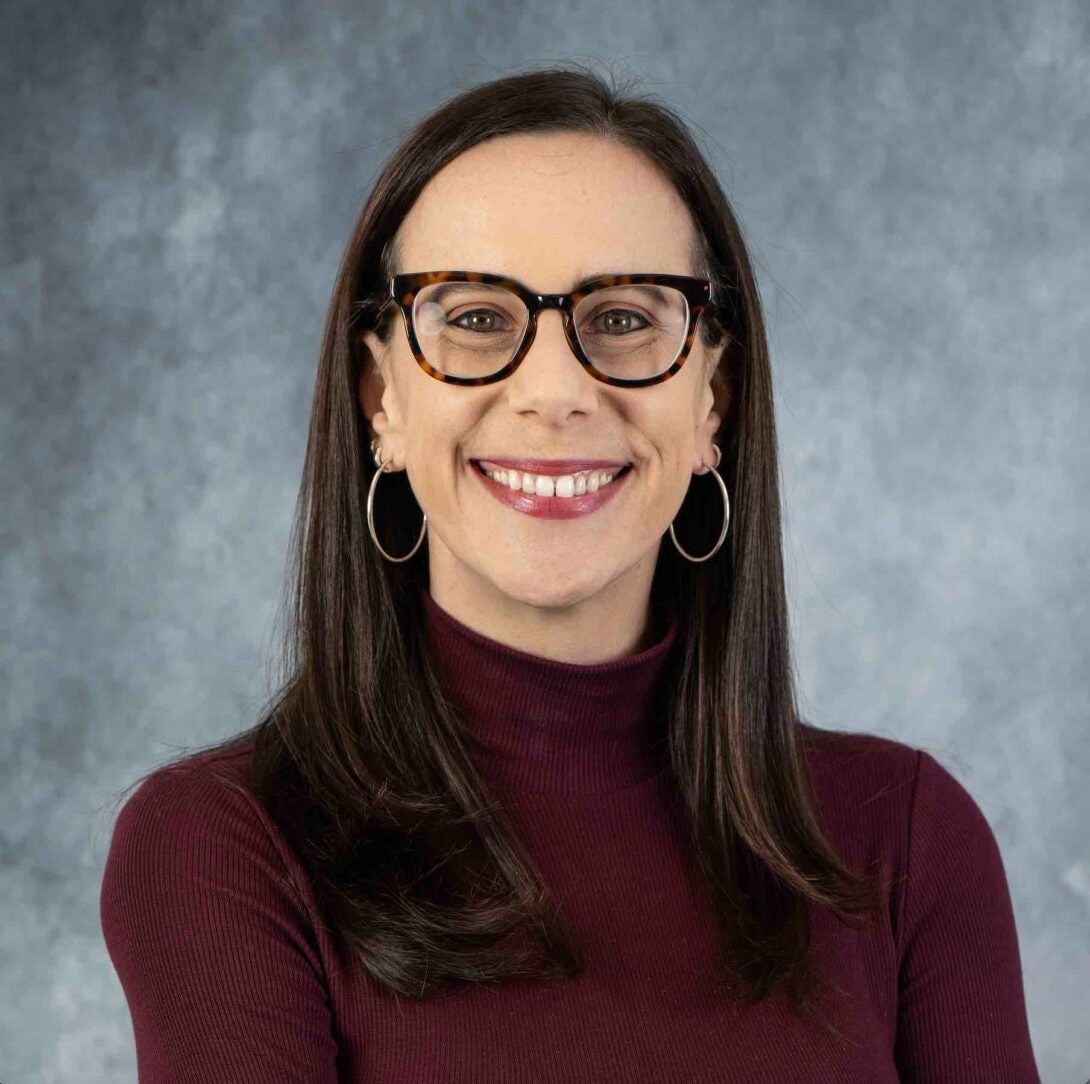
Project Description
Parenting students face numerous challenges as they strive to balance the demands of their family responsibilities with their educational goals. One of the greatest challenges for new parents is maintaining their breastfeeding/lactation routine while spending extended periods of time on campus. The University of Illinois Chicago currently houses 24 designated lactation rooms on the East and West Campuses. However, these spaces may not have been implemented in an optimal fashion and challenges remain in terms of access and quality. Enhancing the existing lactation spaces is an essential part of ensuring a supportive environment for UIC’s student-parents. Using a health equity lens, this study will engage student-parents in a needs assessment of UIC’s lactation spaces. The study will employ a structured survey and focus group discussions to understand student-parents’ experiences with and perceptions of the existing lactation spaces and their suggestions for improvement. Research findings will inform a set of actionable recommendations for elevating the accessibility, comfort level, and communications surrounding the lactation spaces.
Biography
Jessica Rothstein is an Assistant Professor in the Division of Community Health Sciences and a core faculty member of the Center of Excellence in Maternal and Child Health in the School of Public Health. She is a social and behavioral scientist who uses mixed methods to design, implement, and evaluate interventions to reduce maternal and child health inequities. She is particularly interested in the promotion of responsive parenting and optimal infant and young child feeding practices, and has conducted research with communities in Peru, Tanzania, and across Illinois.
Healthy Flames: Piloting a peer-led nutrition experience through a public health lens
Healthy Flames: Piloting a peer-led nutrition experience through a public health lens
Principal Investigator: Sherri Ambrose, MS
Healthy Flames: Piloting a peer-led nutrition experience through a public health lens
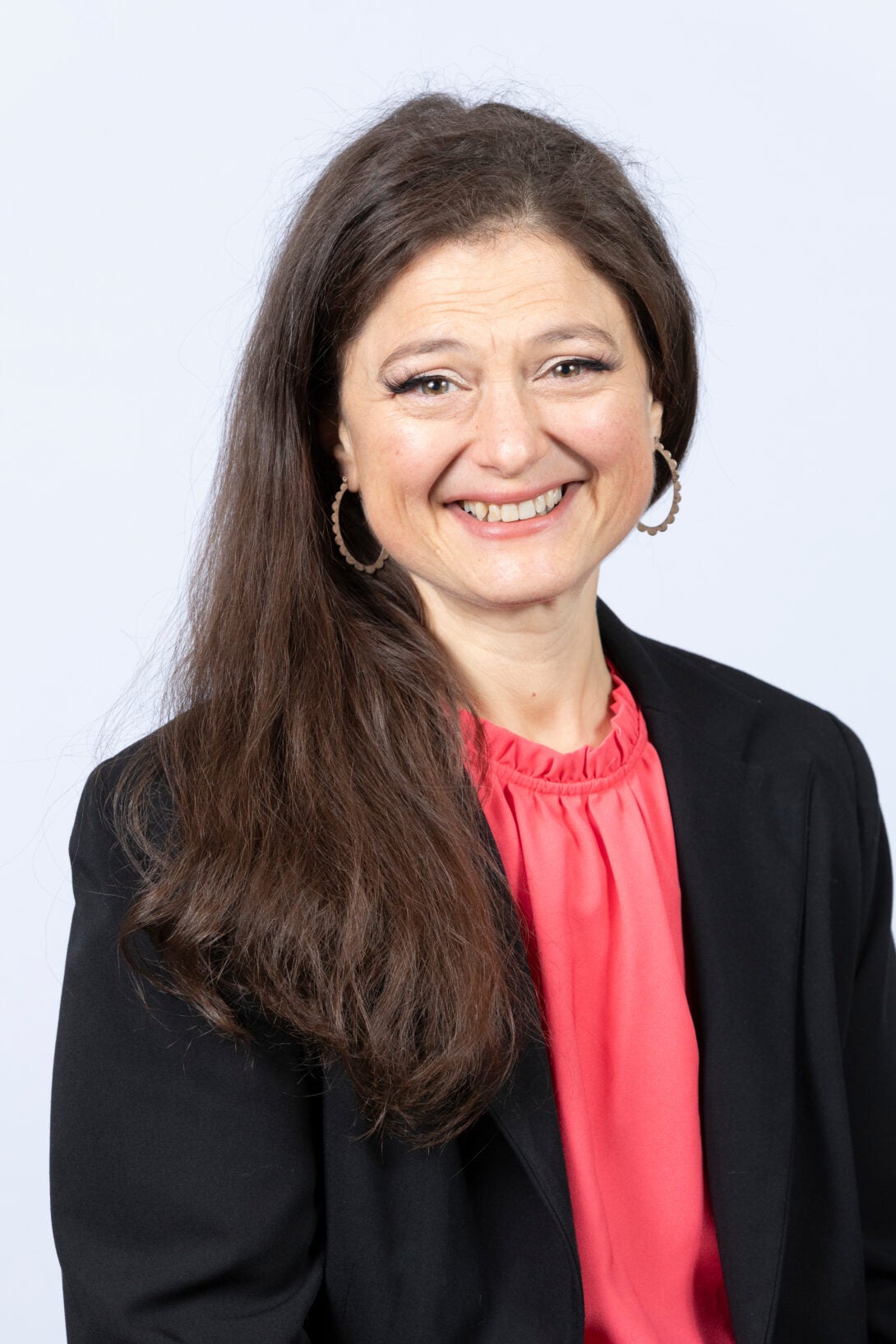
Project Description
Investigators in Recreation and Wellbeing, Public Health Initiatives, and Kinesiology and Nutrition (KN) will be examining the impact of peer-led nutrition cohorts on improving dietary intake and helping students navigate food environments to improve food and nutrition security.
In this novel approach to nutrition security and food access, students from the School of Public Health and KN will develop hands-on nutrition experiences for undergraduates, including topics such as basic nutrition, the connection between food preference, identity, community and belonging, time management, and budgeting skills necessary for making healthy choices. This peer-led course will employ a public health lens and explore how the social determinants of health impact food access. These activities will be overseen by faculty and staff with additional support from the Sodexo Magic team. This course will be piloted in the fall semester of 2025.
Biography
Sherri Ambrose is a community nutrition instructor in the College of Applied Health Sciences, Department of Kinesiology and Nutrition. With over 20 years of community education experience, she is committed to partnering with communities to develop nutrition interventions that support health and well-being.
- Lynne Thompson, MS, Senior Director, Recreation and Wellbeing
- Natalia Lopez-Yanez, MPH, Director, Public Health Initiatives
Student Affairs Faculty Fellows 2023-2024
Student Affairs Faculty Fellows 2023-2024
How do I, an Undecided Student, select my Applied Health Career: Linking Student Career Goals to an Academic Program, and Student Supportive Services Mentorship Program?
How do I, an Undecided Student, select my Applied Health Career: Linking Student Career Goals to an Academic Program, and Student Supportive Services Mentorship Program?
Principal Investigator: Margaret Czart, PhD
How do I, an Undecided Student, select my Applied Health Career: Linking Student Career Goals to an Academic Program, and Student Supportive Services Mentorship Program?

Project Description
Historically, students chose career goals by reviewing the printed Academic Catalog. In the 21st century the career selection options have grown into very specialized areas. In addition, career building information is now provided mainly in a digital format. Developing career goals is especially challenging with so many career options at various levels. The retrieval of the career opportunity information requires information, digital, and computer literacy skills to access, retrieve, and comprehend the information needed for building career goals. The choice is even more complicated when two programs from different colleges have very similar offerings, but the career similarities and differences are unclear. Often this leads to anxiety and stress for students due to pressure from family to make a wise career choice within a given period. This is especially true for first generation students who may not have the support at home to make a career choice. First generation students include heritage/bilingual speakers and first in their family to attend a 4-year higher educational institution. The College of AHS attempts to assist those Undeclared” and “Undecided” with an interest in health care, helping patients and communities. However, many of the health care fields have also become similar due to the interdisciplinary training. The “Undeclared” or “Undecided” students may have interest in health promotion but would like to start their career sooner than often experienced with more traditional health professions such as medicine and nursing. The goal of this research is to: 1) Assess and evaluate the strategy and information used by the “Undecided” student to select a specific career path within the Applied Health vs. other potentially similar career options, 2) Evaluate the role of academic programs and services have on the “Undecided” career choice, and 3) Propose recommendations to the College of AHS on strategic career goal planning focused on the “Undecided Health Care” students.
Biography
Dr. Margaret Czart is a Clinical Assistant Professor in the Department of Biomedical and Health Information Sciences in the College of Applied Health Sciences. Dr. Margaret Czart’s areas of interest involve Consumer Health Informatics, Public Health Informatics, Biomedical Visualization, and Disability Informatics for consumers and patients. Additional projects include the development and assessment of health information online for patient education and engagement through qualitative methods.
Storytelling for Disability Justice: A Critical Approach to Understanding Student Mental Health at UIC
Storytelling for Disability Justice: A Critical Approach to Understanding Student Mental Health at UIC
Principal Investigator: Nicole Nguyen, PhD
Storytelling for Disability Justice: A Critical Approach to Understanding Student Mental Health at UIC
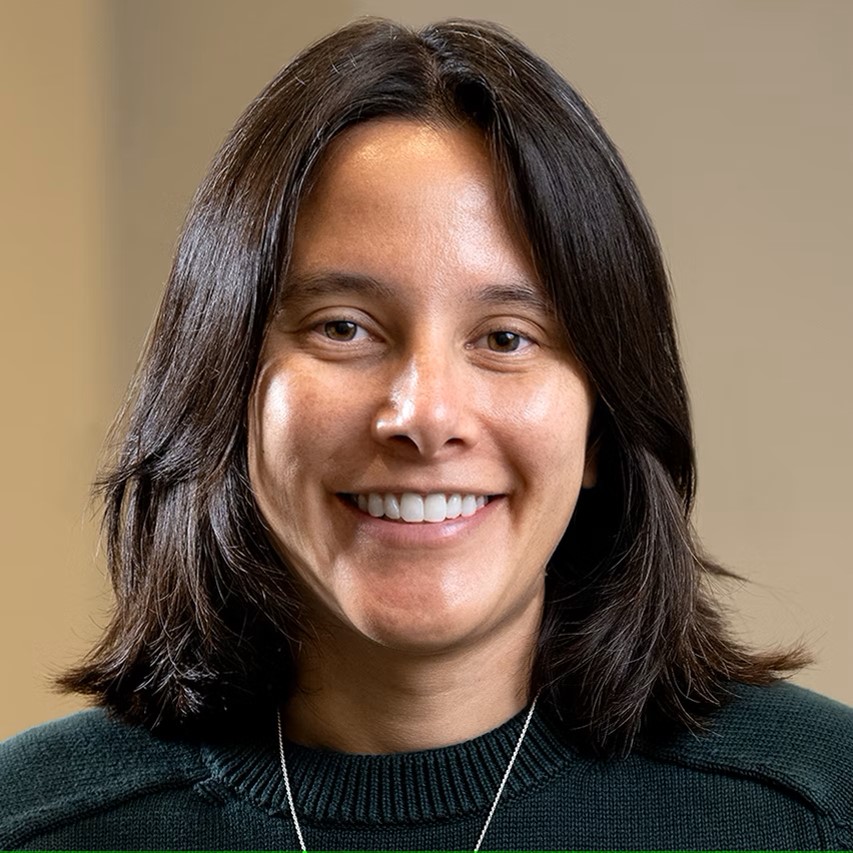
Project Description
This research project will take a disability justice approach to student health and wellness initiatives through a story-making methodology that brings together storytelling and social change to “create and share new understandings of difference that disrupt dominant narratives and open possibilities” and can inform campus policies, programs, and practices (Rice and Mündel 2018:215). Indeed, aside from how often students use counseling services on campus, UIC has little qualitative data on how students experience, negotiate, and make sense of campus mental health services. Furthermore, national studies have shown that 44% of students with disabilities are not registered with their Disability Resource Centers and institutions do not systematically ask about disability when other demographic information is collected, making it difficult to understand the complete picture of disability in higher education (Gierdowski, Brooks, and Galanek 2020). To support the university’s efforts to enhance mental health and wellbeing services, this research study asks: How do students with mental health conditions and psychiatric disabilities experience UIC? What on-campus supports, barriers, relationships, and services shape those experiences and how? What broader structural issues, such as housing insecurity, affect their college experiences and how? How might we begin to reimagine campus approaches to student mental health by engaging disability justice principles?
Biography
Nicole Nguyen is an associate professor of criminology, law, and justice. She is author of three books: A Curriculum of Fear: Homeland Security in U.S. Public Schools, Suspect Communities and the Domestic War on Terror, and Terrorism on Trial: Political Violence and Abolitionist Futures. She is a steering committee member for the healing justice organization Vigilant Love.
- Margaret Fink, PhD, Disability Cultural Center Director
- Nico Darcangelo, PhD, Disability Cultural Center Associate Director
Student Affairs Faculty Fellows 2022-2023
Student Affairs Faculty Fellows 2022-2023
Stoking Our Flames: Piloting a Stepped Care Model at UI College of Medicine
Stoking Our Flames: Piloting a Stepped Care Model at UI College of Medicine
Principal Investigator: Kathleen Kashima, PhD
Stoking Our Flames: Piloting a Stepped Care Model at UI College of Medicine
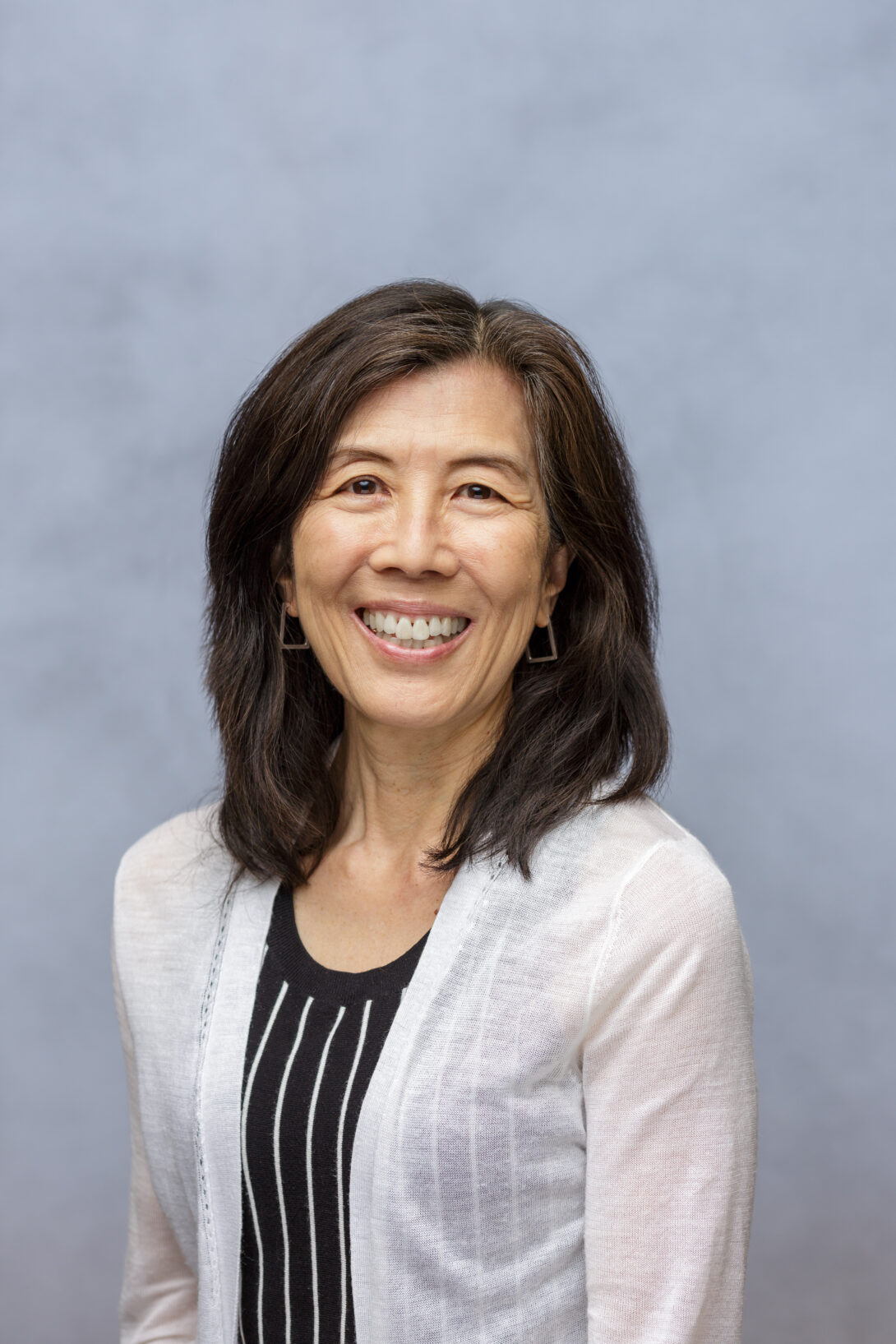
Project Description
The research focuses on a new model for addressing student mental health and well-being on campus that leverages community navigators. 1) Increase student awareness of information about resources and services. 2) Improve student satisfaction by decreasing perceived barriers to access.
Biography
- Michael Gerges, Department of Pediatrics
- Raphael Florestal-Kevelier, UIC Counseling Center
A Photovoice exploration of challenges to adult learners across UIC: Participatory action research with Collaboratory for Health Justice’s (CHJ) Life Scholars
A Photovoice exploration of challenges to adult learners across UIC: Participatory action research with Collaboratory for Health Justice’s (CHJ) Life Scholars
Principal Investigator: Jeni Hebert-Beirne, PhD
A Photovoice exploration of challenges to adult learners across UIC: Participatory action research with Collaboratory for Health Justice’s (CHJ) Life Scholars

Project Description
We aim to use a participatory action research methodology, Photovoice, to examine constraining and facilitating factors influencing the experience of Life Scholars at UIC. Life Scholars are community members engaged as COVID-19 public health outreach workers in Chicago neighborhoods hardest hit by COVID-19, who after two years of gaining public health knowledge and skills, have enrolled in UIC degree programs to advance their leadership careers. The Life Scholars program is an outgrowth of the Community Health Response Corps, a community-based COVID-19 effort co-led by the School of Public Health Collaboratory for Health Justice and the Chicago Department of Public Health designed to reduce secondary transmission of COVID-19 while building the capacity of Community-based Organization and community members to be a part of the hyperlocal public health system. These adult learners who are predominately Black and Latinx were experiencing challenges to employment and career pathways at the time that they were hired as outreach workers. As part of this work, UIC SPH CHJ has been investing in pathways to higher education for the community member who have experienced disrupted higher education experiences due to financial and/or social challenges. We have provided support during the admissions process and continue to provide a facilitated, cohorted model, peer support space. Using a qualitative inquiry process with Life Scholars as co-researchers, photos, collective narratives based on the photos, and group discussion will be analyzed for common patterns to inform institutional and/or policy recommendations exhibited at the Life Scholars Photovoice Exhibit. Strategic UIC stakeholders will be invited to the exhibit and a post event discussion group to identify solutions to the issues elucidated by the participatory action research.
Biography
- Edgar Gutierrez, MPA Collaboratory for Health Justice, Public Health Workforce Career Coach
Strong Like a Mother: Experiences of Student-Mothers on Campus and Visions for an Equitable Future
Strong Like a Mother: Experiences of Student-Mothers on Campus and Visions for an Equitable Future
Principal Investigator: Dalal Katsiaficas , PhD
Strong Like a Mother: Experiences of Student-Mothers on Campus and Visions for an Equitable Future
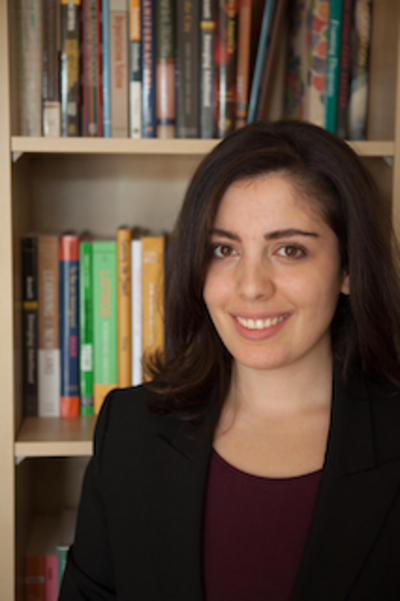
Project Description
More than one in five undergraduate students in the United States are parents, the vast majority of whom are mothers. Living at the intersection of multiple marginalities and privileges based on race/ethnicity, immigration status, religion, socio-economic status, and sexuality, student-mothers are developing amidst a backdrop of politicized rollbacks to their reproductive rights, limited access to basic services and increasing costs of raising a family. This sociopolitical context presents an important moment to better understand the experiences of student-mothers and move towards actionable change to support equitable educational futures. To date we still know very little about who our student-mothers are, what strengths they possess to navigate the higher education pipeline, what resources they rely upon and how college campuses can best support their needs. Therefore, this study explores the specific experiences and needs of student-mothers at UIC in an effort to support their academic journeys, well-being and futures. Utilizing a participatory action research frame, this qualitative study will shed light on the nuanced interplay of identities, communities, inequalities, oppression and privilege as they shape experiences of motherhood on and off campus, their experiences as students, the supports and obstacles they face as well as their hopes and desires for the future.
Biography
Student Affairs Faculty Fellows 2021-2022
Student Affairs Faculty Fellows 2021-2022
Improving the Transition to College for Students with ADHD: Piloting a Summer Readiness Program for Incoming UIC Students
Improving the Transition to College for Students with ADHD: Piloting a Summer Readiness Program for Incoming UIC Students
Principal Investigator: Michael Meinzer, PhD
Improving the Transition to College for Students with ADHD: Piloting a Summer Readiness Program for Incoming UIC Students

Project Description
College students with attention-deficit/hyperactivity disorder (ADHD) are at greater risk for a host of academic and mental health difficulties compared to their peers without ADHD. Mitigating the risk for these adverse outcomes for this high-risk group represents a critical concern. This mixed-methods study aims to: (1) examine how a summer preparatory program for UIC freshman and transfer students with ADHD compares to existing UIC resources in terms of academics, mental health, and resource utilization, (2) refine the SUCCEEDS Summer College Readiness Program based on feedback from students and their caregivers, and (3) qualitatively uncover the challenges UIC students with ADHD (and their caregivers) experience during the transition to UIC.
Biography
Dr. Michael Meinzer is an Assistant Professor in Clinical Psychology at UIC. His work focuses on the development and implementation of tailored programming for adolescents and young adults with attention-deficit/hyperactivity disorder (ADHD) and other mental health concerns. Other areas of interest include depression and suicide prevention, school-based mental health, and increasing access to empirically-supported mental health care in underserved populations.
Promoting Educational Equity: Identifying and Understanding Transformative Social-Emotional Student Supports
Promoting Educational Equity: Identifying and Understanding Transformative Social-Emotional Student Supports
Principal Investigator: Amanda L. Roy, PhD
Promoting Educational Equity: Identifying and Understanding Transformative Social-Emotional Student Supports
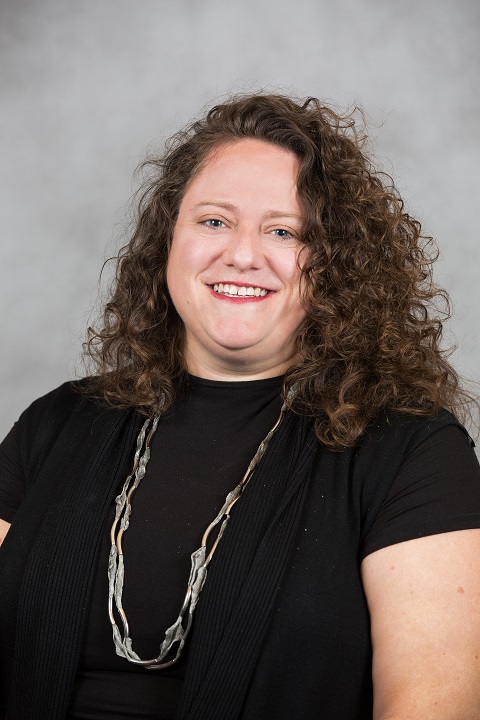
Project Description
Latinx and Black youth have expressed being motivated to pursue higher education for humanitarian reasons, where they view college not simply in terms of their own personal economic mobility, but also as a way to uplift their families and communities (Uriostegui et al., 2020). Transformative social and emotional learning (T-SEL) practices that address issues of identity, agency, and belonging may support UIC undergraduate students’ motivations for higher education and, as a result, promote student engagement and academic success. The Office of Student Affairs oversees campus programs and services that aim to support students both academically and socially. However, it is unclear whether, and how, UIC programs and services integrate T-SEL principles and practices into their interactions with undergraduate students. This mixed-methods study will examine (1) the extent to which T-SEL practices are used by UIC student supports and services and (2) how UIC undergraduate students perceive and respond to T-SEL practices in the support that they receive.
Biography
Dr. Amanda L. Roy is an Associate Professor in the Community and Prevention Research Program within the Psychology Department. Her research explores the ways that (1) neighborhood risk and resilience and (2) family poverty shape individual health and development. In recent work, she is examining how young people from minoritized backgrounds make educational and career plans and the ways that their understanding of societal inequity and their motivations to effect social change play a role in this decision-making process. She is collaborating on this work with Dr. Christine Li-Grining at Loyola University.
Pathways from Community College to a 4-year University: Experiences of Students with a Foster Background
Pathways from Community College to a 4-year University: Experiences of Students with a Foster Background
Principal Investigator: Jennifer Geiger, PhD
Pathways from Community College to a 4-year University: Experiences of Students with a Foster Background

Project Description
Despite the known benefits of earning a college degree, it is estimated that approximately 3-5% of youth with foster care experience graduate with a bachelor’s degree, compared to almost a third of the general population in the U.S. Despite recent estimates showing a growing number of youth in care pursuing community college, with many transferring or desiring to transfer to a 4-year institution, little is known about how these youth experience the transition from community college to a 4-year institution and how programs and staff serve a role in supporting this transition. This study aims to increase our understanding of this transition from the perspective of the student through in-depth interviews. This knowledge can inform multiple areas of practice within student affairs, financial aid, admissions, transfer services, first year initiatives, and various supports on and off-campus.
Biography
Dr. Jennifer Geiger is an Associate Professor at the Jane Addams College of Social Work at the University of Illinois Chicago. Her research focuses primarily on promoting access and success in postsecondary education settings for youth in an formerly in foster care. She leads the Sparking Success Scholars Program at UIC that aims to improve college experiences for students with a foster care background through raising awareness, sharing information, community building, and providing comprehensive support.
Student Affairs Faculty Fellows 2020-2021
Student Affairs Faculty Fellows 2020-2021
Queerying Our Campus: An LGBTQIA+ Campus Climate Study
Queerying Our Campus: An LGBTQIA+ Campus Climate Study (2020-2022)
Principal Investigator: Nic M. Weststrate, PhD
Principal Investigator: Nic M. Weststrate, PhD
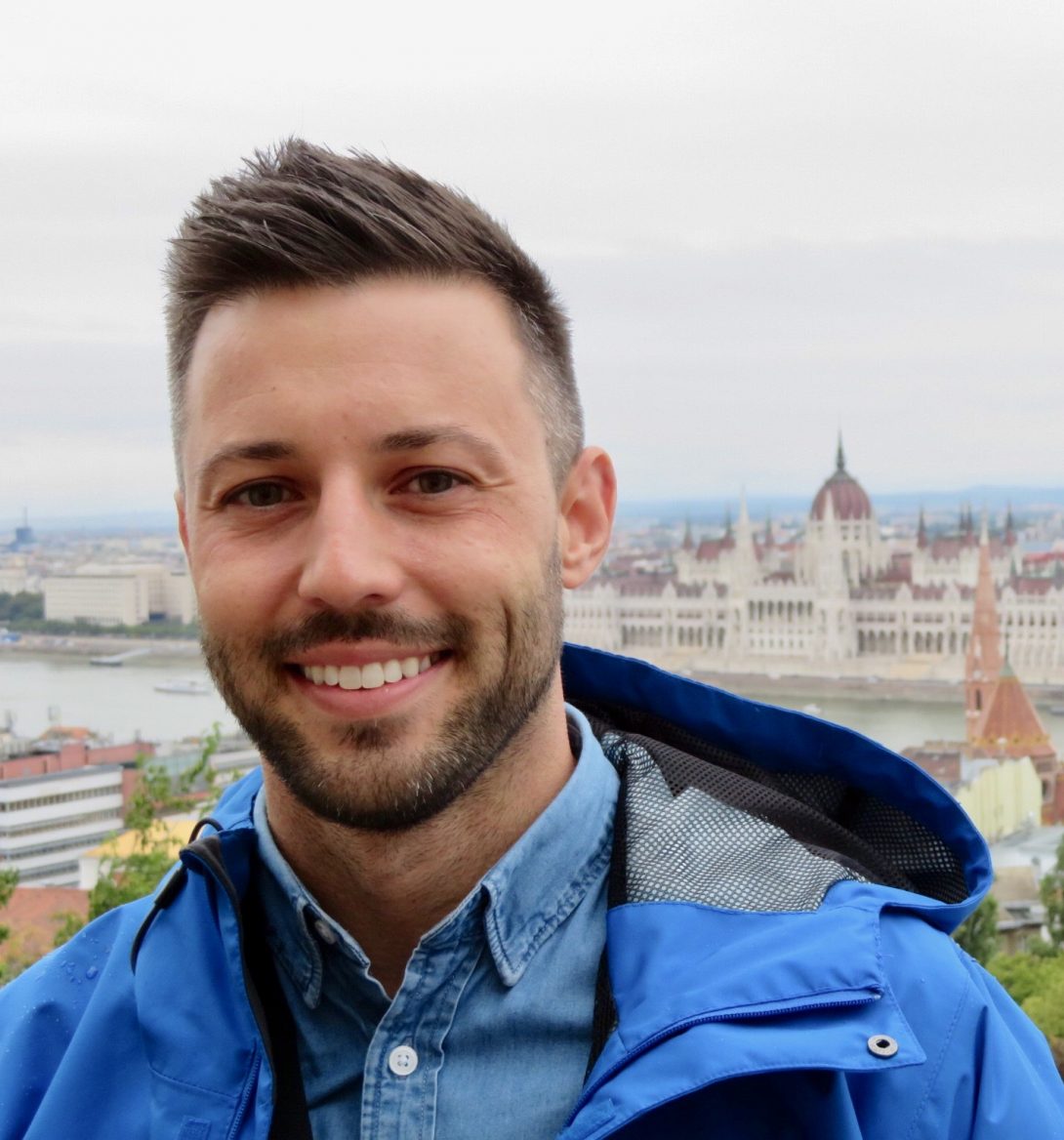
Project Description
In a proud moment earlier this summer, UIC was recognized as Illinois’ best college for LGBTQIA+ students. This accolade reflects UIC’s robust commitment to fostering the well-being and success of LGBTQIA+ students through inclusive policies, programs, and services. Little is known, however, about how these institutional commitments translate to LGBTQIA+ student experiences. Research has shown that student perceptions of campus climate are related to academic and psychosocial outcomes. In partnership with the UIC Gender and Sexuality Center, the present research project will illuminate the experiences, needs, and concerns of LGBTQIA+ students through a campus climate study. Utilizing a sequential mixed-methods design, this campus climate study will proceed in three stages: (1) in-depth qualitative interviews to center diverse student voices and inform survey development; (2) a largescale quantitative survey to generate a broad understanding of campus climate and to examine links between experiences and outcomes; and (3) focus groups to contextualize survey findings and provide policy recommendations. The results of this campus climate study will enable Student Affairs professionals and other campus stakeholders to develop intentional policies, programs, and services that meet the emergent and evolving needs of LGBTQIA+ students in these unpredictable and uncharted times.
Biography
Nic M. Weststrate, PhD, is an Assistant Professor of Human Development and Learning in the Department of Educational Psychology and a member of the Center for Research on Health and Aging in the Institute for Health Research and Policy at UIC. His research investigates optimal psychosocial development across the lifespan, with an emphasis on the development, manifestation, and transmission of wisdom. His recent research explores intergenerational storytelling within the LGBTQIA+ community as a context for wisdom sharing among youth and elders.
Collaborators
- Gender & Sexuality Center
- College of Education
The COVID-19 Pandemic’s Impact on the Academic Engagement and Retention of UIC Undergraduate Students: A Mixed-Methods Study
Principal Investigator: Alexios Rosario-Moore, PhD
The COVID-19 Pandemic’s Impact on the Academic Engagement and Retention of UIC Undergraduate Students: A Mixed-Methods Study
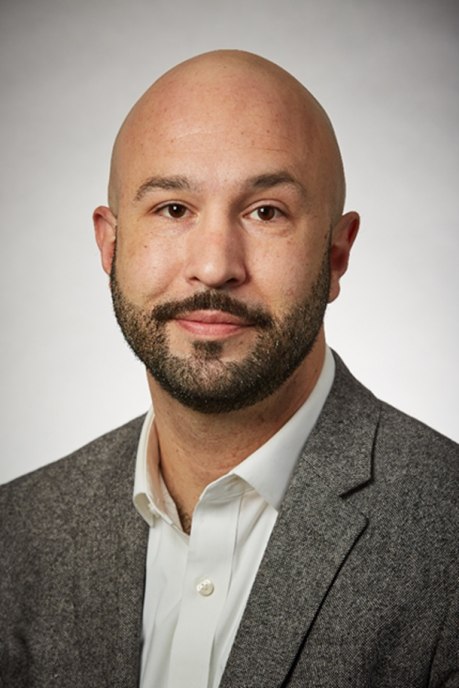
Project Description
As students have returned to UIC’s campus, administrators lack data that examines the scale and character of the pandemic’s impact on undergraduate students, their academic engagement, and decision-making related to retention or departure. COVID-19 has had a disproportionately negative economic and health-related impact on Cook County, and a disproportionately negative impact on Black and Latinx communities. This mixed-methods study is designed to assess and describe racial and ethnic disparities in the pandemic’s impact so that the university can better support the students who are most affected by this crisis.
Biography
Dr. Rosario-Moore’s research focuses on racial and socioeconomic equity in secondary and post-secondary education through an integrated analysis of federal and state policy, organizational sense-making and implementation, and perception and decision-making among students and families. Prior research has examined the influence of federal accountability regimes on racial and ethnic disparities, the influence of race and social class on the college choice process, and an analysis of a collaborative university-public school partnership. He currently teaches courses in the M.Ed. in Urban Higher Education program and the Ed.D. in Urban Educational Leadership program.
Scanning for Engagement: How People Assess Support and Fairness in Organization
Scanning for Engagement: How People Assess Support and Fairness in Organization
Principal Investigator: John Lynch
Scanning for Engagement: How People Assess Support and Fairness in Organization

Project Description
Engagement is a crucial issue to organizations, whether they be employers or universities. In the workplace, employee engagement takes the form of cognitive, emotional, and physical energy workers commit to their jobs (Rich, LePine, & Crawford, 2010). On-campus, student engagement similarly takes the form of immersive participation in class and other co-curricular activities (Astin, 1984). Whether at work or school, engagement can facilitate performance and learning, and thus, understanding what drives engagement is important for organizations. Drawing from theories related to fairness, inclusion, and identity, we are investigating how student-workers’ interpretation of their work (and school) environment can shape their level of engagement. This research contributes to theory by considering how people scan their social environments. This research also will contribute to practice by identifying ways organizations can encourage engagement amongst their employees and students.
Biography
John Lynch is an Assistant Professor of Management at the University of Illinois at Chicago. He received his Ph.D. in Management from the University of Georgia’s Terry College of Business and his Master of Arts in Counseling and Personnel Services at the University of Maryland. Before getting his doctorate, John worked in higher education, specifically Residence Life and Greek Life. He now researches employee identity management, stigmas in the workplace, and employee volunteering programs. John’s teaching interests include organizational behavior, human resource management, and leadership.
Call Sue
Questions? Contact Sue Farruggia, spf@uic.edu